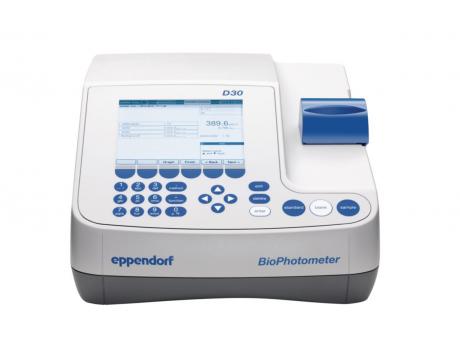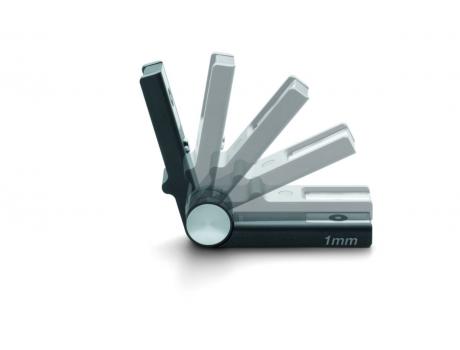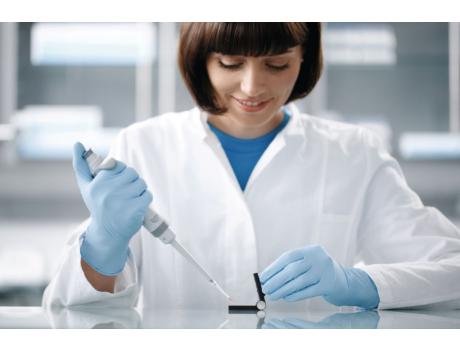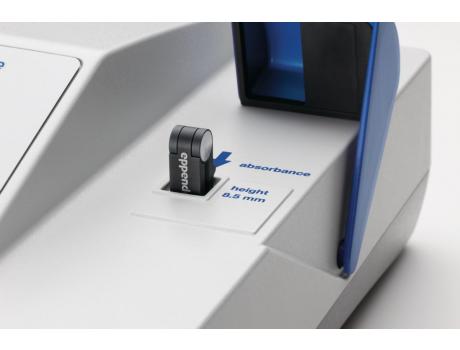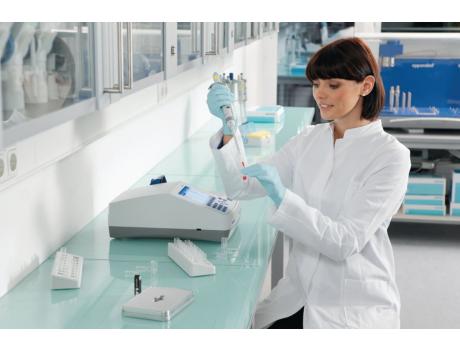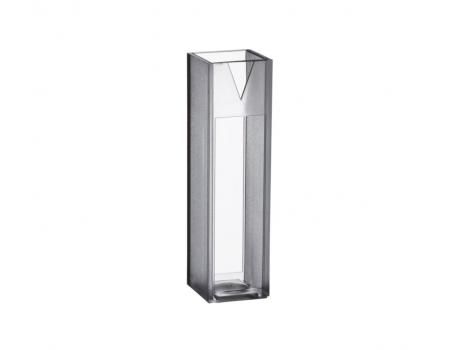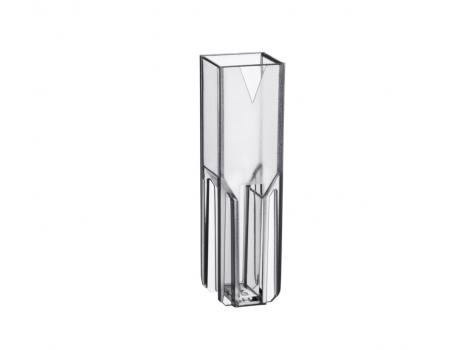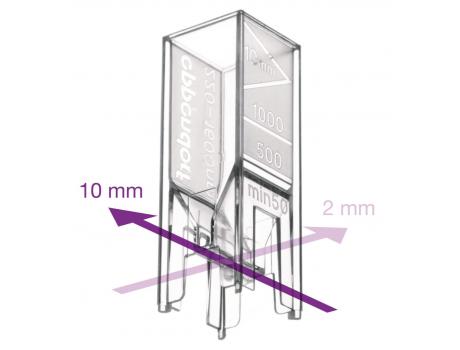The Eppendorf BioPhotometer D30 is the 3rd generation of Eppendorf spectrophotometers to become an established standard in the life sciences. Routine pre-defined wavelengths are easily selectable, allowing for quick and simple programming. Users are guided through every step of the assay with short, simple on-screen instructions. The ultra-stable Xenon flash lamp doesn't require any warm up time and a measurement typically takes 5 seconds. Raw and processed data are clearly presented on the large color screen and can be exported directly from the instrument in a variety of common formats. Eppendorf disposable UVettes enable measurements with as little as 50 µL of sample and the Eppendorf µCuvette G1.0 reduces this further to 1.5 µL of sample.
Nucleic acid purification is a major application in molecular laboratories. Purity and homogeneity of the sample are important considerations for subsequent applications. In practice, nucleic acids are purified with the help of commercially available kits which allow for the separation of most cellular components. However, the presence of proteins or other organic components in the eluate may not be entirely eliminated. When purifying nucleic acid without a kit, additional contamination risks are posed by the chemicals used in the process, e.g. phenol or ethanol from a phenol/chloroform extraction. To ensure minimum contamination of the sample, it is essential to verify its purity by photometric measurements. The ratios of the absorbance values at the wavelengths 230 nm, 260 nm and 280 nm (260 nm/230 nm and 260 nm/280 nm), provide a clear picture of the purity of a nucleic acid sample. The following values represent a pure DNA sample:
A260/A230 ≥ 2.0
A260/A280 = 1.8 – 2.0














